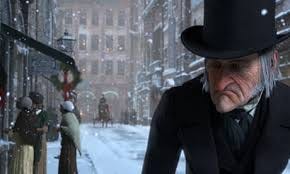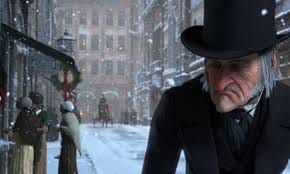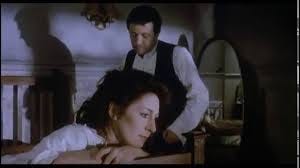I don’t know when I began to feel how marbled Christmas is with death, but it was very early on. I couldn’t arrive at the Church of the Redeemer for the Christmas Eve children’s service without noticing the graveyard and thinking of those who lay beneath the frozen crust of the earth, they who had once celebrated Christmas too. They were absent forever now, some remembered, some too long gone for that. Church taught me the convergence of death and Christmas. Even St. Luke’s gospel was full of precarity; the holy couple’s journey back to their birthplace to pay their taxes was not explicitly described as dangerous and arduous, but I assumed it must be, and that small stable was a tough place to give birth or to be a newborn baby. And what of the kings crossing the desert, following a new bright star? The whole story rang of contingency as much as destiny.
It is the darkest and coldest time of year, the bright lights and presents and good cheer notwithstanding. A thin time, when the dead are particularly close and missed. I meet them at every turn, encounter beloveds embedded in each decoration I place, see them marbled in to each cookie and muffin. That pinched stomach feeling of loss is part of Christmas. I cannot separate the two.
Every year I find my match in understanding about this kindred between death and Christmas in two favorite literary works. They are not the only two; that death and Christmas are paired seems to be a truth universally acknowledged. But to each their own, and I have mine.
The first is A Christmas Carol by Charles Dickens. It is relentlessly about the presence of death in life, and how this presence can lead in either of two directions; an embrace of life’s beauty and possibilities or a capitulation to the darkness of the grave and living as if one were already there. I often teach Scrooge as one of the great literary characters, a larger than life invention who is the stingiest, the bitterest, the most completely devoid of compassion, the most warped and cruel and wrecked. To read the story is to contend with trauma and devastation at the furthest end of the scale—and to consider how far along that scale we ourselves might be located. What have the hurts in life done to us? We cannot help but consider this as we travel with Ebenezer through time at the behest of four ghosts, each of whom show him facets of his life and the lives of others that he has repressed in favor of work and only work. The ghosts show him the truth, and he intelligently puts the whole picture together and changes overnight, goes from miserable and close-fisted to joyous and generous. He is scared straight.
There is little of religion in the story, yet the message of Christmas, the birth of hope into the world, is a well-rendered carol throughout the text. Like all great literature, the meaning can’t be experienced in a close reading. Dickens works on all the senses, even beyond the five, and reaches hearts and minds playfully and deeply through his word choices and rhythms. I am as moved by his commitment to his stories as I am by the stories; Dickens, whose father put him in a work house as a child, is a miracle himself. He neither flags not skimps, is ever generous and imaginative, a genius to the toes. This year I listened to a version of A Christmas Carol read by Hugh Grant, who captured every nuance. The invention of Tiny Tim and his little crutch is just so ingenious, the threat to him so nerve-wracking, not to mention the threat to Ebenezer’s soul—I fall for it all. There are more subtle characters than Scrooge in literature but none more memorable. What chains do we rattle, what boxes weigh us down? It’s never too late to come to terms with it.
My other Christmas read is “The Dead” by James Joyce. He wrote it when he was 23, which seems impossible for how complex and layered it is, but then much genius manifests early in life. It tales place on Twelfth Night and slides into Epiphany, as does the story itself. The protagonist, Gabriel, is a person who reminds me of that joke about George H.W. Bush, that he was like everybody’s first husband; a plug, my grandfather would call him. He is a dutiful nephew to his aunts who are hosting a dinner party, though he is preoccupied with the speech he will give and goes over his notes self-consciously. A cautionary tale of how a desire to make a good impression can be burdensome for all. Again, death is all around in this story. Many dead are remembered during the course of the dinner, including beautiful tenor voices that the guests heard in the past. The aunt are old; the eldest, Aunt Julia, will soon be a shade herself, it will happen. Yet it is the story of a 17-year-old boy, Michael Fury, the first love of his wife Greta’s, that brings Gabriel to see himself much as the ghosts did for Ebenezer. Michael Fury died of love. Gabriel realizes he simply doesn’t have that in him. Love and art—a beautiful tenor voice, for example—might transcend the limitations of human life, but most don’t have that chance. Gabriel doesn’t; he is condemned to know that. He loves his wife, but not like that. She cries herself to sleep and he cannot penetrate that barrier that falls over us every night, previewing the great barrier of death. The end of the story is the most beautiful ever written. If only could have Gabriel understood that his interior monologue occurred in the language of the angels, he may have been consoled.
The air of the room chilled his shoulders. He stretched himself cautiously along under the sheets and lay down beside his wife. One by one, they were all becoming shades. Better pass boldly into that other world, in the full glory of some passion, than fade and wither dismally with age. He thought of how she who lay beside him had locked in her heart for so many years that image of her lover's eyes when he had told her that he did not wish to live.
Generous tears filled Gabriel's eyes. He had never felt like that himself towards any woman, but he knew that such a feeling must be love. The tears gathered more thickly in his eyes and in the partial darkness he imagined he saw the form of a young man standing under a dripping tree. Other forms were near. His soul had approached that region where dwell the vast hosts of the dead. He was conscious of, but could not apprehend, their wayward and flickering existence. His own identity was fading out into a grey impalpable world: the solid world itself, which these dead had one time reared and lived in, was dissolving and dwindling.
A few light taps upon the pane made him turn to the window. It had begun to snow again. He watched sleepily the flakes, silver and dark, falling obliquely against the lamplight. The time had come for him to set out on his journey westward. Yes, the newspapers were right: snow was general all over Ireland. It was falling on every part of the dark central plain, on the treeless hills, falling softly upon the Bog of Allen and, farther westward, softly falling into the dark mutinous Shannon waves. It was falling, too, upon every part of the lonely churchyard on the hill where Michael Furey lay buried. It lay thickly drifted on the crooked crosses and headstones, on the spears of the little gate, on the barren thorns. His soul swooned slowly as he heard the snow falling faintly through the universe and faintly falling, like the descent of their last end, upon all the living and the dead.
So don’t feel that sadness at Christmas is unusual, or to be struggled against, or denied. It comes with the territory. The region where dwell the vast hosts of the dead is near. Our existence is flickering. Have a merry one, in acceptance of that.





A stunning piece, Alice, thank you. It always struck me that, as you say, Christmas is a thin place, where the living and the dead, the present and the past, are separated by a thin veil of time and memory. My concentration in college was on Dickens, and I loved all of the books (some more than others), but A Christmas Carol probably the most, and took my mother to see the original manuscript some years ago at The Morgan Library. I remembered that Dickens was in a workhouse as a child, and (if I recall accurately) as a result of his father being in debtor’s prison for not being able to pay back 40 pounds. It broke Dickens’ heart, and, I think, made him who he was; like Baldwin says, he tells the same stories again and again, until his stories become clearer and clearer.
I thought it was just I who felt this way at Christmas.
This is utterly timely, Alice, and exquisite. It's also a powerfully helpful consolation, because I imagine too many of us feel we've made some misstep feeling crushed during this holiday. You elucidate the predicament perfectly. And yes, Joyce's is the most beautiful ending ever written. Thank you for this great blessing of insight and generosity.